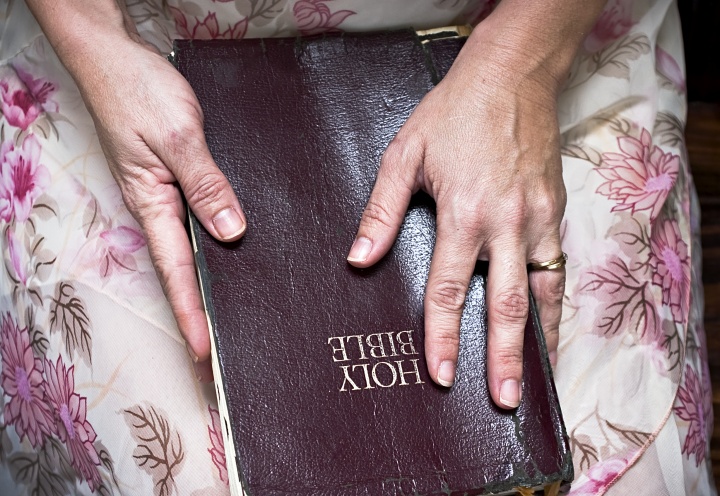The Bread of Life
Downloads
The Bread of Life

“I thought that sounded like an idea for a college hazing prank,” said the older gentleman. He had just heard me give a sermon explaining why and how to keep the biblical festival of the Days of Unleavened Bread. "Put out the leavened bread," I had said. "Look in all the places of your home where crumbs and particles of bread and crackers may have fallen during the year. Make sure you get out every last crumb, and don’t forget to empty your vacuum cleaner.”
Looking back on that sermon I think I spent too much time telling people how to physically clean their home and not enough time on the deeper spiritual meaning behind the commanded ritual of putting out leaven—leaven being a symbol of spiritual sin. Now, years later, when I give sermons explaining to people how to keep this festival I teach them to remove leavened products, like bread, cakes and crackers and leavening agents like yeast and baking soda, from their homes. But I do not dwell at length on this. I have learned it is far more important—in fact the real spiritual lesson behind putting out the physical leaven—is to focus on putting out spiritual sin from my life. The real reason for a Christian to keep this festival is to learn that we can’t really put out sin without the help of Jesus Christ, the true bread of life.
The Days of Unleavened Bread give us a seven-day period to focus on our need to work against sin with the help of Christ’s life within us.
God’s teaching is to eat unleavened bread during this festival. Why? The answer lies in understanding two passages of Scripture from the New Testament. In the first, the apostle Paul is writing to a Gentile church in Corinth which never had the knowledge of this festival prior to responding to hearing the gospel. In his first letter to the church Paul tells them to keep this festival with a deeper spiritual understanding. They had a false pride because of sin, and he told them to remove the sinner from their fellowship so they could face spiritual reality. "Therefore purge out the old leaven, that you may be a new lump, since you truly are unleavened. For indeed Christ, our Passover, was sacrificed for us. Therefore let us keep the feast, not with old leaven, nor with the leaven of malice and wickedness, but with the unleavened bread of sincerity and truth” (1 Corinthians 5:7-8).
Christ’s sacrifice for us is the means of forgiveness from the penalty of sin: death. Paul was saying that we can't treat it lightly. His teaching is to keep the Feast with the "unleavened bread of sincerity and truth.” The ultimate meaning of this festival is "Christ in us." One becomes unleavened—that is without sin—through Christ’s life in us. Let’s notice Christ’s teaching about bread.
John’s gospel account records a long discussion by Jesus after he performed a miracle feeding people with bread and fish. His real purpose was more than providing a lunch for people. It was to teach a deeper spiritual purpose to His life. Physical bread eaten would not satisfy. There was a bread from heaven they needed if they hoped for eternal life. “For the bread of God is he which cometh down from heaven, and giveth life unto the world…And Jesus said unto them, I am the bread of life: he that cometh to me shall never hunger; and he that believeth on me shall never thirst…I am that bread of life…This is the bread which cometh down from heaven, that a man may eat thereof, and not die…I am the living bread which came down from heaven: if any man eats of this bread, he shall live forever: and the bread that I will give is my flesh, which I will give for the life of the world” (John 6:33; John 6:55; John 6:48; John 6:50; John 6:51, King James Version).
What bread does a Christian eat that fits what Christ is saying here? It is the unleavened bread of sincerity and truth that we eat on Passover and continue eating during the seven day festival of Unleavened Bread. The unleavened bread represents Christ’s life within us. As we eat unleavened bread during the seven days, we’re reminded that we don’t live by bread alone: “Man does not live by bread alone,” as Jesus said on another occasion, “but by every word that proceeds from the mouth of God” (Matthew 4:4).
The Days of Unleavened Bread give us a seven-day period to focus on our need to work against sin with the help of Christ’s life within us. That life, through the power of the Holy Spirit, gives us the faith and the ability to overcome sin, becoming a new spiritual creation in the image of our Father. The apostle Paul shows us the end result of this spiritual transformation: "I have been crucified with Christ; it is no longer I who live, but Christ lives in me; and the life which I now live in the flesh I live by faith in the Son of God, who loved me and gave Himself for me” (Galatians 2:20).
I have kept this biblical festival for more than five decades. It has become a part of my life each spring that I eagerly anticipate. I wish I could go back to that long ago sermon and tweak it a bit. I wouldn’t sound like a “college hazing prank.” I think it would sound like the Word of God.
